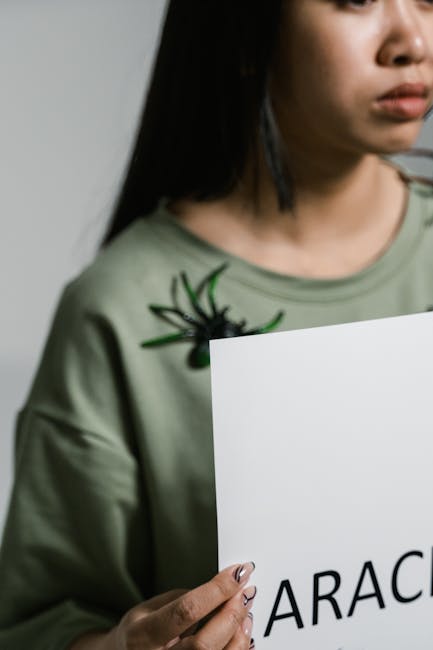Anxiety Management: Techniques to Reduce Stress
In today’s fast-paced world, anxiety and stress have become common issues that affect millions of people globally. According to the World Health Organization, anxiety disorders affect 264 million people worldwide. Whether it’s due to work pressures, personal issues, or global events, managing anxiety is crucial for maintaining mental and physical well-being. This blog post will delve into various techniques to help you reduce stress and manage anxiety effectively.
This post contains Amazon affiliate links, meaning I may earn a small commission if you purchase through my links, at no extra cost to you. Note: We aim to provide accurate product links, but some may occasionally expire or become unavailable. If this happens, please search directly on Amazon for the product or a suitable alternative.
Understanding Anxiety: Causes and Symptoms
Before diving into the techniques for managing anxiety, it’s essential to understand what anxiety is and what causes it. Anxiety is a feeling of worry, nervousness, or unease about something with an uncertain outcome. It can manifest in various ways, including physical symptoms like increased heart rate, sweating, and trembling.
Common Causes of Anxiety
Several factors can contribute to anxiety, including:
- Genetics: A family history of anxiety disorders can increase your risk.
- Environmental factors: Stressful or traumatic events can trigger anxiety.
- Medical conditions: Some health issues, such as thyroid problems, can cause anxiety symptoms.
- Substance abuse: Alcohol, caffeine, and certain drugs can exacerbate anxiety.
Symptoms of Anxiety
Anxiety can affect both the mind and body. Common symptoms include:
- Restlessness and a feeling of being “on-edge”
- Fatigue and difficulty concentrating
- Muscle tension and headaches
- Sleep disturbances, such as insomnia
Effective Techniques for Anxiety Management
Managing anxiety involves a combination of techniques that address both the mind and body. Here are some evidence-based methods to help you reduce stress and manage anxiety:
1. Practice Mindfulness and Meditation
Mindfulness and meditation are powerful tools for managing anxiety. According to a study published in JAMA Internal Medicine, mindfulness meditation can significantly reduce symptoms of anxiety and depression. Mindfulness involves focusing on the present moment and accepting it without judgment. You can practice mindfulness through activities like deep breathing exercises, guided imagery, and progressive muscle relaxation.

2. Exercise Regularly
Physical activity is a natural stress reliever. Regular exercise releases endorphins, which are chemicals in the brain that act as natural painkillers and mood elevators. According to the Anxiety and Depression Association of America, people who exercise regularly are 25% less likely to develop anxiety disorders. Aim for at least 30 minutes of moderate exercise, such as walking, cycling, or swimming, most days of the week.
3. Maintain a Healthy Diet
What you eat can affect your mood and anxiety levels. A balanced diet rich in fruits, vegetables, whole grains, and lean proteins can help stabilize your blood sugar levels and improve your mood. Avoid excessive caffeine and sugar, as they can increase anxiety symptoms. Incorporate foods rich in omega-3 fatty acids, such as salmon and flaxseeds, which have been shown to reduce anxiety.
4. Get Adequate Sleep
Sleep and anxiety have a bidirectional relationship. Anxiety can lead to sleep disturbances, and lack of sleep can exacerbate anxiety. Aim for 7-9 hours of quality sleep each night. Establish a regular sleep schedule, create a calming bedtime routine, and make your sleep environment comfortable and free from distractions.
5. Limit Alcohol and Caffeine
Both alcohol and caffeine can interfere with your sleep patterns and increase anxiety levels. While alcohol may initially help you relax, it can disrupt your sleep and leave you feeling anxious the next day. Similarly, caffeine is a stimulant that can increase heart rate and anxiety symptoms. Try to limit your intake of both substances, especially in the hours leading up to bedtime.
6. Practice Deep Breathing Exercises
Deep breathing exercises can help activate your body’s relaxation response. Techniques such as diaphragmatic breathing and the 4-7-8 breathing method can help reduce anxiety. To practice diaphragmatic breathing, sit or lie down in a comfortable position, place one hand on your chest and the other on your abdomen, and take slow, deep breaths through your nose. Focus on moving your abdomen more than your chest.
7. Seek Professional Help
If your anxiety is severe or persistent, it may be beneficial to seek professional help. Therapists and counselors can provide support and teach you coping strategies. Cognitive-behavioral therapy (CBT) is particularly effective in treating anxiety disorders. Additionally, medication prescribed by a healthcare provider can help manage symptoms in some cases.
8. Engage in Creative Activities
Engaging in creative activities such as painting, writing, or playing a musical instrument can be therapeutic and help reduce anxiety. Creativity allows you to express your emotions and provides a healthy distraction from stressors. According to a study published in the Journal of Positive Psychology, engaging in creative activities can improve overall well-being and reduce feelings of anxiety.

9. Connect with Others
Social support is vital for managing anxiety. Connecting with friends, family, or support groups can provide emotional comfort and reduce feelings of isolation. According to a survey by the American Psychological Association, 47% of adults reported that having someone to talk to helped them cope with stress. Make an effort to nurture your relationships and reach out to others when you need support.
10. Set Realistic Goals
Setting realistic and achievable goals can help you feel more in control and reduce anxiety. Break down larger tasks into smaller, manageable steps, and prioritize them based on importance. Celebrate your accomplishments, no matter how small, and avoid being overly critical of yourself. This approach can help you stay focused and reduce feelings of overwhelm.
Conclusion
Managing anxiety is a multifaceted process that requires a combination of techniques to address both the mind and body. By incorporating mindfulness, regular exercise, a healthy diet, and other strategies discussed in this post, you can significantly reduce stress and improve your overall well-being. Remember that it’s essential to seek professional help if your anxiety becomes overwhelming. With the right tools and support, you can successfully manage anxiety and lead a healthier, more balanced life.









